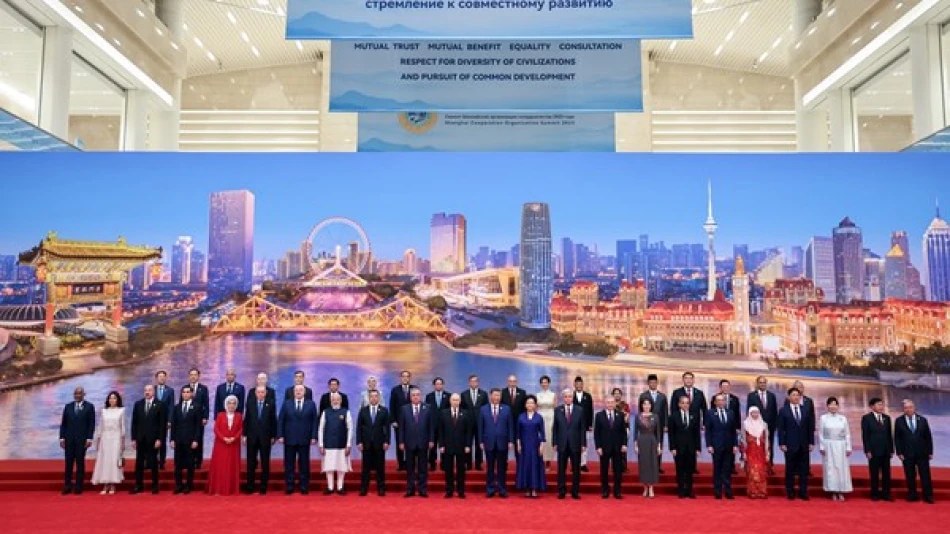
Shanghai Cooperation Organization Summit Commences: Global Powers Convene for Strategic Discussions
China Positions Shanghai Cooperation Organization as Key Player in Global Security Architecture
Chinese President Xi Jinping used the Shanghai Cooperation Organization (SCO) summit in Tianjin to signal Beijing's growing ambitions for the regional bloc as a counterweight to Western-led international institutions. With around 20 world leaders in attendance, including Vladimir Putin and Narendra Modi, Xi declared that the organization now bears "greater responsibility" for maintaining regional peace and stability—a statement that underscores China's push to reshape global governance structures.
Strategic Timing Amid Global Tensions
The summit comes at a critical juncture as traditional Western alliances face strain from ongoing conflicts in Ukraine and the Middle East, while economic uncertainties challenge established trade relationships. Xi's emphasis on building consensus among member states reflects China's broader strategy of positioning itself as a stabilizing force in an increasingly multipolar world.
The presence of key figures like Russian President Vladimir Putin, Indian Prime Minister Narendra Modi, and Turkish President Recep Tayyip Erdoğan highlights the SCO's evolution from a regional security organization into a platform for major powers seeking alternatives to Western-dominated institutions like NATO and the G7.
Economic Implications for Global Markets
For investors and multinational corporations, the SCO's enhanced role signals potential shifts in trade corridors and investment flows. The organization's member states control significant energy resources and represent massive consumer markets, making their collective economic coordination increasingly relevant for global supply chains.
Energy and Infrastructure Focus
The bloc's emphasis on regional development and prosperity aligns with China's Belt and Road Initiative, suggesting deeper integration of infrastructure projects across Central Asia, South Asia, and beyond. This could create new opportunities for construction, technology, and financial services companies while potentially challenging existing Western-led development frameworks.
Geopolitical Realignment in Motion
Unlike previous SCO gatherings that focused primarily on counterterrorism and border security, this summit's broader mandate reflects the changing global landscape. Xi's call for enhanced cooperation comes as member states increasingly coordinate responses to Western sanctions and seek alternative mechanisms for international trade and diplomacy.
The organization now encompasses roughly 40% of the world's population and represents a significant portion of global GDP, giving its decisions substantial weight in international affairs. This demographic and economic heft positions the SCO as a genuine alternative pole in global governance, particularly for countries seeking to diversify their diplomatic and economic partnerships beyond traditional Western frameworks.
Most Viewed News

 Layla Al Mansoori
Layla Al Mansoori






